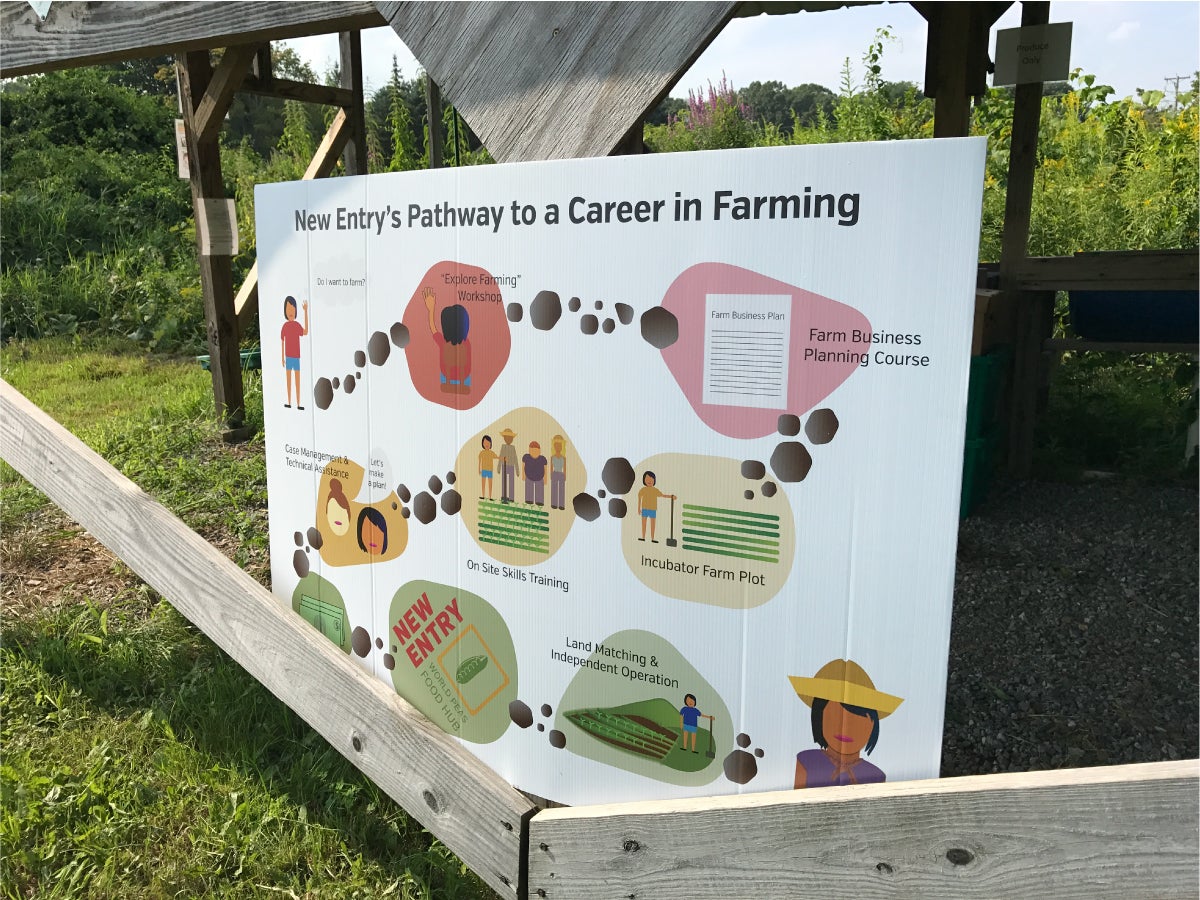Taking Root
Phalla Nol, 51, is a Cambodian immigrant, a tireless businesswoman and the flywheel of a family farm that employs her mother, younger brother, son and other family and friends. On two acres in North Andover, Mass., they organically grow regional standbys—corn, tomatoes, bell peppers, eggplant—as well as produce less familiar to New England, including luffa, bitter melon and Asian cucumber. Whatever country Nol’s farmers’ market customers hail from, they’re likely to find the food of their homeland under Nol’s tent.
I love the people that love my vegetables.
Her thriving business has its roots in the Friedman School’s New Entry Sustainable Farming Project, launched in 1998 to help refugees and other immigrants make a start in New England agriculture. (Sixty refugee farming projects have since sprung up across the country.) From the beginning, New Entry’s mission was twofold: provide economic opportunities for immigrants, and ensure a sustainable food system. Over the years, New Entry expanded its scope to train recent college grads and people starting a second career, but refugees and recent immigrants still make up 30 percent of its long-term farmers.
400
Hours of Technical Assistance Provided to New Farmers in 201623
Farmers in Training Who Completed the Farm Business Planning Course2300
Low Income Seniors, Families, and Children Received New Entry Produce350
Households Were Delivered Local ProduceNol’s late father was one of New Entry’s first grower-trainees back in 2004—he’d bring his daughter to workshops as his translator. Once a mayor in Cambodia, he took to farming with passion, regularly working far past sundown.
Now Nol is the one putting in the long hours, sometimes harvesting water spinach or melon by flashlight until 11 p.m., preparing for the next day’s market. “I love to see my things grow,” she said. “And then my customers, they love me, they love what I grow. I love the people that love my vegetables.”
(Story by Julie Flaherty for Tufts Magazine)
About New Entry Sustainable Farming Project
New Entry's farmer training programs help new and prospective farmers learn what it takes to run a small farm operation, from the very basics in "Explore Farming," to the intricacies of business planning and farm management in their seven-week Farm Business Planning Class. Their Incubator Farm Program provides on-the-ground experience, while field trainings, livestock workshops, and specialized advanced workshops delve into the nitty gritty of growing fresh, healthy food.
Over the past year, nine beginning farmers honed their skills on New Entry's three incubator training farm sites, including three first-year farmers. The new Beginning Farmer and Rancher Development Program Training and Technical Assistance for Applicants project began in 2016, which supports programs in securing funding for beginning farmer training. Friedman's New Entry Sustainable Farming Project continues each year to invest in strengthening local food systems.

Our Strategic Plan: Sustainable Food Environments
Our future demands sustainable, healthy agricultural systems and food environments — both in the United States and globally. Our unparalleled breadth and diversity of expertise in nutritional science, agriculture, population health, economics, public policy, public health, statistics, and food systems makes us the leader in interdisciplinary education in this area. By further expanding our capacity in key domains, such as those related to climate change, water, and the food industry, we will continue this leadership and train graduates to develop real-world solutions for the complex interplay between agricultural practice, food systems, sustainability, and health.